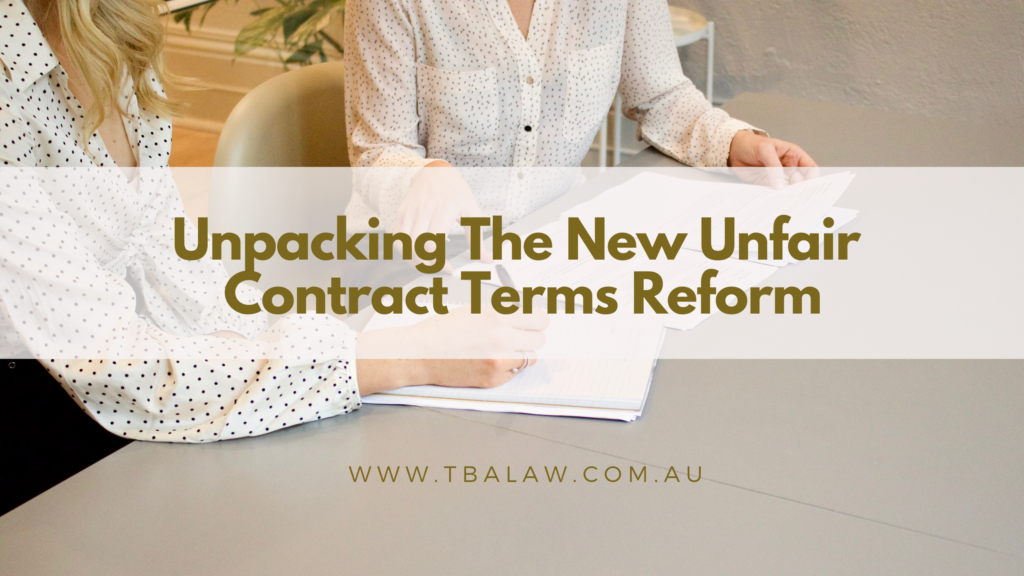Unpacking the new unfair contract terms reform
by Mitchell Fuller
“Who ever said life is fair? Where is that written? Life isn’t always fair,” – Grandpa, The Princess Bride
If you’ve ever been stood up by a date, had your train cancelled, or seen your footy team lose due to a questionable umpiring decision, you’re bound to agree that plenty of things in life aren’t fair.
Now, the Commonwealth Government wants to add certain standard-form contracts to that list. What are these changes, and what could they mean for your business?
The draft Bill currently being considered proposes significant changes to the unfair contract terms regimes in the Australian Consumer Law (ACL) and the Australian Securities and Investments Commission Act 2001 (Cth) (ASIC Act), with implications for businesses that use standard-form contracts.

What are standard-form contracts? Does my business use them?
Although some businesses write up a new contract for each consumer and are happy to negotiate terms with them, many businesses offer contracts that aren’t tailored to individual consumers and are usually presented on a take-it-or-leave-it basis without scope for negotiation. These are the contracts that will be affected by the changes.
What is changing?
The most important changes include:
- Expanding the existing regime to include a broader range of contracts, and expanding the definitions of what counts as a “small business”;
- Introducing new pecuniary penalties that go beyond the existing range of remedies and compensation;
- A (rebuttable) presumption that contract terms are unfair if they are similar to those previously declared to be unfair.
The ACL, for consumers, and the ASIC Act, for financial services and products, explain when terms in standard-form contracts are deemed to be unfair. Currently, if a term in a contract is found to be unfair by a Court, the term is void, and compensation may be awarded.
Soon, using unfair contract terms could attract pecuniary penalties (fines) of up to $10 million for businesses and $500,000 for individuals, in addition to the existing compensation regime.
What’s more, Courts could impose additional remedies beyond those currently available, including orders to vary a contract term rather than just void it.
These orders can apply to similar terms a business has used with any customer – even those not subject to the proceedings! For example, if a standard-form contract that has been entered into with 100 customers is found to be unfair by even one customer, the contract could be required to be amended across all 100.
What does this mean for my business?
This presents a significant risk for businesses using standard-form contracts, and makes it even more important for businesses to get their contracts right.
If you’re running a business that uses standard-form contracts (that are sent to many consumers on the same terms, and usually non-negotiable), now is the perfect time to act quickly and ensure your business is ready for the new regime before these changes take place.
Ask yourself:
- Are you confident that your standard-form contracts do not contain unfair terms, which could lead to significant fines or compensation?
- Have other contracts in your industry been the subject of unfair terms proceedings? Do your contracts contain similar terms?
- What steps do you need to take to ensure compliance with the new laws?
- Are there challenges in ensuring your contracts are compliant?
- Are you uncertain about how these changes will affect you?
What should I do next?
Our firm can help you review your standard-form contracts, compare them to contracts found to be unfair, and amend them to ensure they comply with the new regime. We can also help you keep abreast of future unfair contract terms proceedings in your industry and ensure your standard-form contracts are updated to take these into account.





Leave A Comment